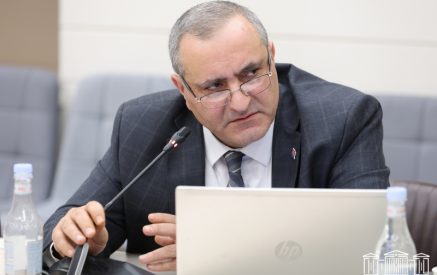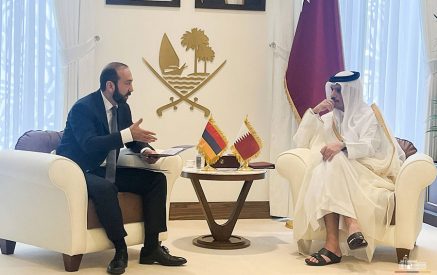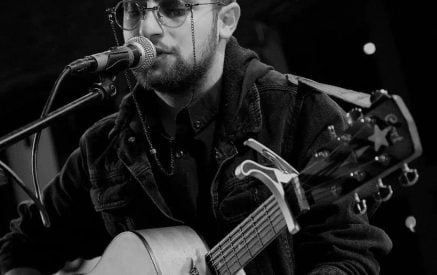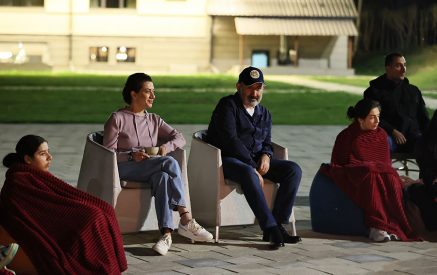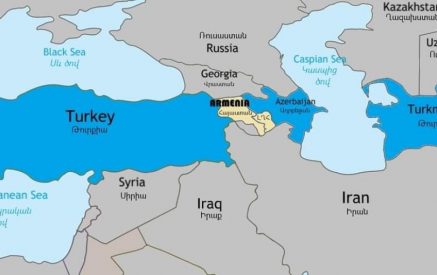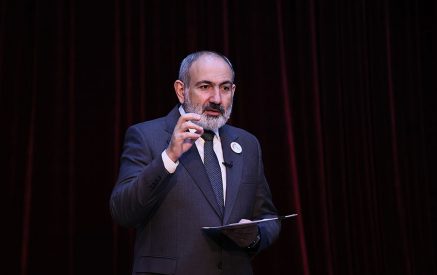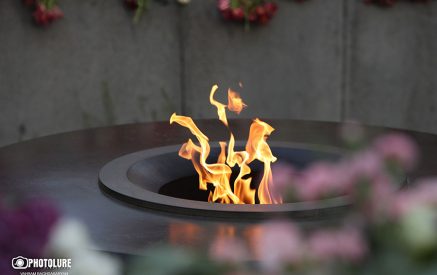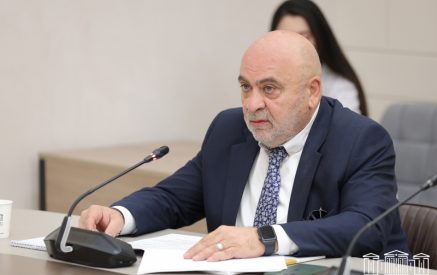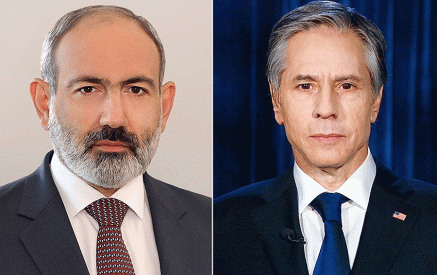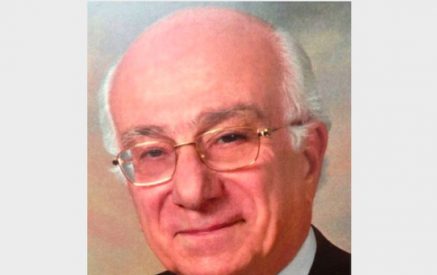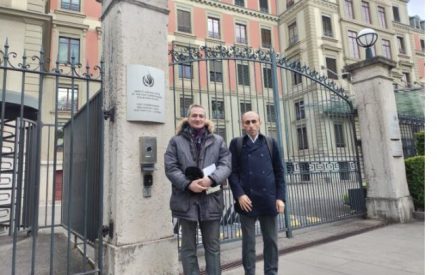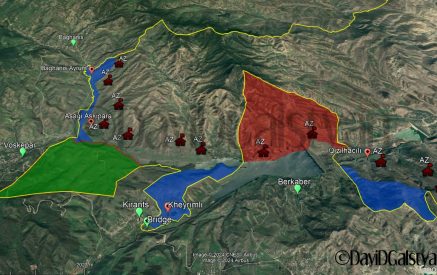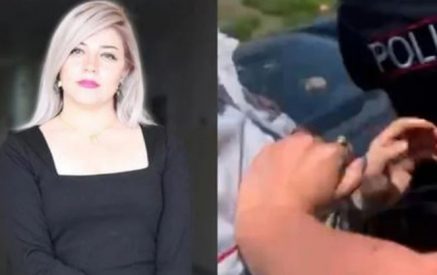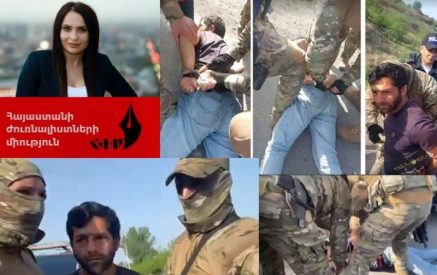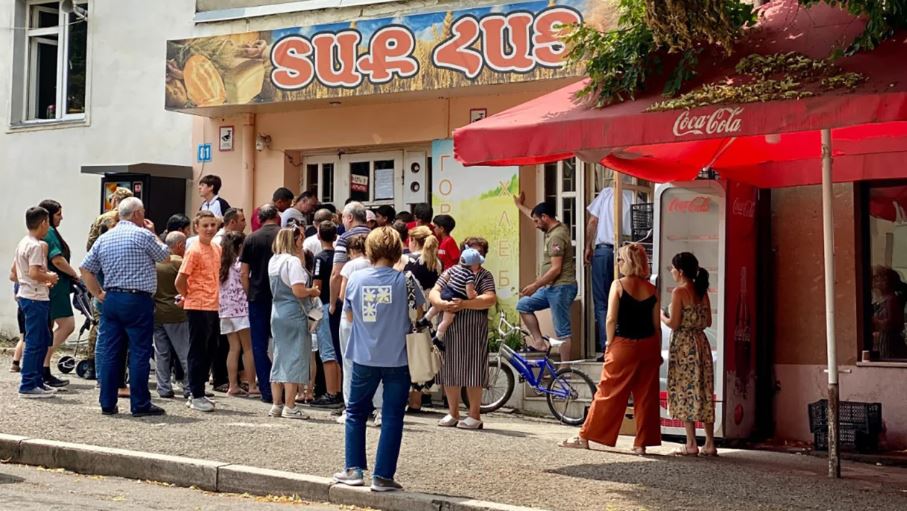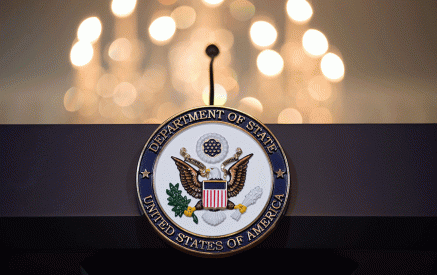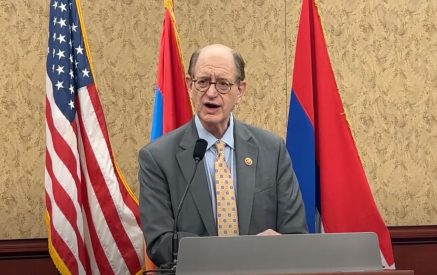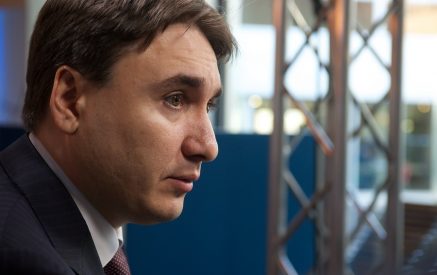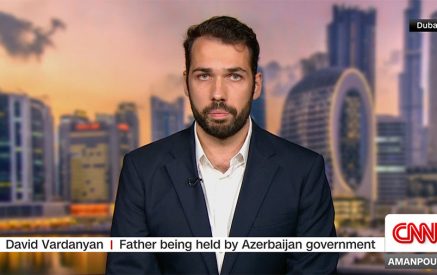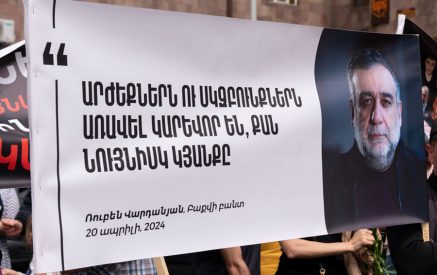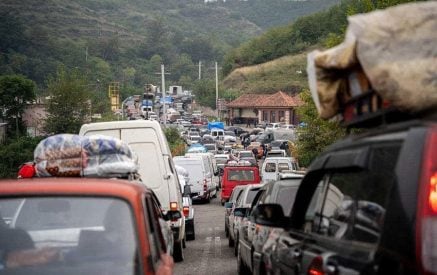By Caolán Magee
Ani Kirakosyani found out she was pregnant a month after the blockade of Nagorno-Karabakh began.
In her village of Haterk, tucked in a valley between the Caucasus hills, food supplies ran out quickly and the shops started to close, Kirakosyani told CNN. The only food available was what she could pick from her garden, mainly tomatoes and beans.
Read also
Throughout her pregnancy, Kirakosyani could not attend her hospital consultations as public transport was cancelled due to fuel shortages – instead she walked for miles to the local medical clinic, which did not have the capacity to detect early problems with her pregnancy, she said, speaking to CNN by telephone.
Kirakosyani is one of the 120,000 inhabitants of Nagorno-Karabakh – known as the Republic of Artsakh by locals – a disputed territory home to a majority ethnic Armenian population that is internationally recognized as being a part of Azerbaijan. The region has been blockaded since December 2022, when the only road connecting the landlocked region to the outside world, the Lachin corridor, was blocked by “eco-activists” backed by the Azerbaijani government, which has since installed a military checkpoint along the corridor. This prompted the International Association of Genocide Scholars (IAGS) to warn of the risk of genocide against the Armenian population of Nagorno-Karabakh.
Six months into her pregnancy, Kirakosyani felt a pain in her abdomen and was taken to the hospital. On the way, the ambulance had to stop and collect six other patients, as the driver had to ration its fuel. When Kirakosyani finally arrived in hospital, she was told her pregnancy was in jeopardy and she would have to give birth three months early.
Her husband was away working with the military, and he could not get fuel to make the 100-mile car ride to support her in the hospital. She was alone when the doctors told her she had had a stillbirth brought on by malnutrition and stress, she said.
“If not for the blockade, I would be playing with my child today,” Kirakosyani told CNN.
According to statistics provided exclusively to CNN by the Ombudsman of the Artsakh Republic – a public official who monitors protection of human rights by state and local self-government bodies – the number of recorded miscarriages has increased fourfold from this time last year.
And, as shortages of food, fuel and medicines caused by the months-long blockade take an increasing toll on the region’s population, officials there have reported the first death from malnutrition on August 15, according to Gegham Stepanyan, the ombudsman of Artsakh, who CNN reached by phone.
International media have been refused entry into the territory since the blockade was imposed.
The Tom Lantos Human Rights Commission, a bipartisan US congressional body, has scheduled a Wednesday hearing on the situation in Nagorno-Karabakh.
‘The road of life’
The Lachin corridor is known locally as “the road of life,” as 90% of the food consumed in Nagorno-Karabakh previously came into the region from Armenia via that route, according to figures provided by the elected president of Nagorno-Karabakh.
The International Committee of the Red Cross (ICRC), which was previously the only NGO allowed to bring humanitarian aid across the Lachin corridor, last delivered desperately needed food supplies to the region on June 14, according to an ICRC press release from August 18.
In August, UN experts urged Azerbaijan to end “the dire humanitarian crisis” in the enclave by lifting the blockade, while former International Criminal Court chief prosecutor Luis Moreno Ocampo said there was “reasonable basis to believe that genocide is being committed against Armenians.”
Responding to Ocampo’s comments, a lawyer hired by Azerbaijan called the claim of genocide “a groundless and very dangerous allegation.”
Artsakh President Arayik Harutyunyan, who was elected in 2020, told CNN by email: “Azerbaijan has blockaded the Republic of Artsakh with the ultimate goal of committing genocide against our people.”
Asked by CNN for comment, the Armenian government shared remarks made by Armenian Prime Minister Nikol Pashinyan in a cabinet meeting, in which he said: “Azerbaijan is subjecting the Armenians of Nagorno-Karabakh to genocide by subjecting them to starvation.”
CNN reached out to the Azerbaijani foreign ministry for comment but has not heard back.
As food, medicine, water and fuel are prevented from entering the territory, local supplies are dwindling. According to the administration for the Artsakh Republic, dairy products, cereal, fish, chicken, cooking oil, sugar, salt, fruit and vegetables, as well as fuel and hygiene products, are unavailable inside the territory.
Max Mkhitaryan, a shopkeeper, took CNN on a video tour of his shop in the capital, Stepanakert.
He told CNN that before the blockade he had received most of his produce from Armenia. The only things now left on the shelves were packets of bread, locally produced honey, and a few bottles of vodka. With most shelves empty, he says he can now only serve one in 10 customers.
“Before I used to serve 250 customers per day – now I can barely serve my family. I only have one week left until the shop closes and I am jobless,” he told CNN.
Outside his shop, queues for bread meander through the unkempt streets. Garbage collections are regularly postponed due to fuel shortages, while in the local pharmacy, supplies are rapidly diminishing.
The fuel shortages also mean electricity is rationed, with power cuts for eight hours each day, and drinking water is no longer treated, leading to a spike in related illnesses, according to Stepanyan.
According to the enclave’s administration, 95% of residents are suffering from malnutrition and hidden hunger, a term referring to a lack of essential vitamins and minerals.
As winter beckons and the harvest season approaches without fuel to collect the crops, those trapped in Nagorno-Karabakh fear their cries are being ignored.
‘Ethnic cleansing’
Armenia and Azerbaijan have been engaged in a tug of war over the status of Nagorno-Karabakh since the collapse of the Soviet Union. This power vacuum was filled by nationalism, and violence against ethnic minorities quickly followed. Both Armenians in Azerbaijan and Azeris in Armenia claim they were ethnically cleansed, leaving sectarian scars on the minds of generations – on either side of their disputed border.
In the early 1990s, Armenian forces took control of large swaths of territory in and around Nagorno-Karabakh. Azerbaijan, backed by Turkey, in turn seized control over large parts of those territories during a six-week war in 2020 that claimed thousands of lives.
The separatist territory was left with the main city of Stepanakert and a few surrounding towns, as well as a population still reeling from the losses of the bloody 2020 conflict, which was followed by sporadic skirmishes along the border. Amid the latest flare-up of tensions, Baku claims it will fully retake and integrate the territory into Azerbaijan – while ethnic Armenians refuse to be uprooted from a region they claim is their homeland.
Ronald Suny, a professor of political science at the University of Michigan, told CNN: “Now that it has won the 2020 war with Armenia, Azerbaijan’s ultimate goal is to drive the Armenians of Artsakh out of Azerbaijan.
“Rather than use direct violence, which would incite opposition from abroad… Baku is determined to make the Armenians’ lives impossible, starve them out, and pressure them to leave,” he said.
To make matters more complicated, Azerbaijan – a one-party state headed by President Ilham Aliyev for the past two decades – has offered to supply the breakaway region via a crossing at the nearby Azerbaijani city of Aghdam.
“Given Azerbaijan’s genocidal intentions and their systematic state policy of long-standing anti-Armenian hatred, our people hold legitimate concerns about the safety of any products originating from Azerbaijan,” Harutyunyan, the elected Nagorno-Karabakh leader, told CNN
“Instead of feigning attempts to deliver humanitarian assistance, Azerbaijan must unblock the Lachin corridor,” he said.
As the blockade carries on with no end in sight, Peter Stano, an EU foreign affairs spokesperson, told CNN of his “deep concern over the serious humanitarian situation” and called for the full resumption of traffic through the Lachin corridor, including medical evacuations and humanitarian supplies.
A United States State Department spokesperson told CNN by email: “We urge the government of Azerbaijan to restore free transit of commercial, humanitarian, and private vehicles through the Lachin corridor expeditiously.”
But Harutyunyan told CNN he was “disappointed with the reactions of the EU and the US so far” and argued the “reasons behind the European and American inaction and failures are purely geopolitical.”
“These reasons include energy reliance on Azerbaijan,” he added.
According to Reuters, the European Union agreed in July 2022 to double gas imports from Azerbaijan by 2027.
Meanwhile Russia, which brokered the ceasefire in 2020, has peacekeepers along the Lachin corridor but has refrained from intervening further.
CNN has reached out to the Russian Foreign Ministry but has yet to hear back.
Russian Foreign Ministry spokeswoman Maria Zakharova said in a briefing on August 2 that Russia dismissed any claim of inaction against the Russian peacekeepers “as counterproductive and non-reflective of their real contribution to the effort to stabilize the situation on the ground.”
Artyom Tonoyan, a professor of global studies at Hamline University in the United States, told CNN that the Russians, who usually exert influence over the Caucasus, are “so engaged with Ukraine they do not have the willpower to mitigate the conflict.”
‘Running out of hope’
As co-ordinated international action to end the blockade appears unlikely anytime soon, the people of Nagorno-Karabakh are left focusing on short-term solutions: gathering firewood, collecting water and foraging for food.
This time last year, Anahit Gharaghazaryan, a schoolteacher and mother of three, told CNN she was preparing lessons for her pupils as they return from the summer holidays.
Next week was meant to be her five-year-old son’s first day of school. Instead, she is wondering how he will survive the winter.
According to a report given to CNN by Stepanyan, doctors consider it unacceptable for children to continue their studies after suffering malnutrition, while a lack of public transport and an inability to access stationery, books and clothing make it impossible for children to attend school this year.
At a UN Security Council meeting in August, the Deputy Foreign Minister of Armenia, Vahe Gevorgyan, warned that Azerbaijan’s blockade “has impacted 2,000 pregnant women, around 30,000 children, 20,000 older persons, and 9,000 persons with disabilities.”
“If the blockade does not end soon – more people will starve. I cannot sleep thinking about how I will feed my three sons,” Gharaghazaryan said. “We are all running out of hope. How many more people will have to die before the world takes notice?”

